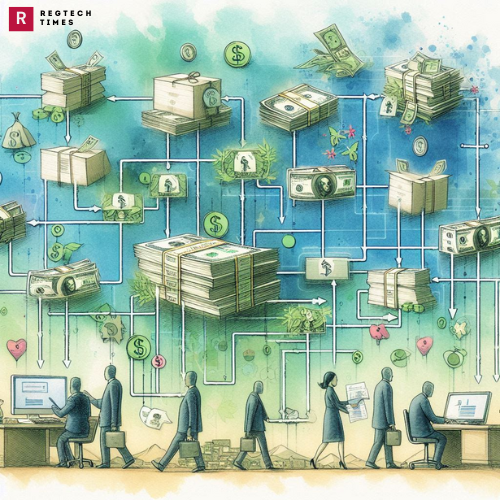In the digital age, finding love online has become as simple as a swipe or a click. However, this convenience comes with its own set of challenges. The rise of online dating has opened up a new avenue for fraudsters to exploit unsuspecting victims, turning them into what the FBI calls “money mules”. This is a world where individuals like Laura Kowal find themselves ensnared in the web of romance scams, their quest for love leading them down a path of betrayal and financial ruin.
The Rise of Romance: Scams and Accomplices
Laura Kowal’s journey into the world of online romance began innocently enough, with love notes and giddy phone calls from a man who called himself Frank Borg. However, what started as a whirlwind romance soon descended into a nightmare of manipulation and deceit. Over time, Frank’s affectionate gestures gave way to methodical instructions on setting up fake companies and bank accounts to facilitate the movement of illicit funds. Laura, like many others, had become a victim turned accomplice in the hands of her manipulative tormentors.
The Scammers’ Tactics
Scammers have become adept at exploiting the trust they build with their victims. They were stolen money from one victim into another victim’s new bank account. Afterward, they guide the victim to transfer those funds internationally through wire transfers, withdraw them in cash for collection by couriers, or convert them into cryptocurrency. This convoluted process makes it difficult for authorities to trace the money and apprehend the culprits.
The Psychological Manipulation of Laura Kowal
Scammers, adept at preying on the vulnerabilities of their targets, employ a myriad of tactics to coerce their victims like Laura Kowal into becoming “money mules.” Leveraging the trust and emotional bonds they have cultivated, scammers gradually erode their victims’ sense of agency, compelling them to carry out fraudulent activities under the guise of love and loyalty. James Barnacle, head of the FBI’s financial crimes section, acknowledges the challenge of dealing with these cases, where victims find themselves trapped in a web of deceit with no clear way out.
For law enforcement agencies, prosecuting individuals caught in the tangled web of romance scams presents a daunting challenge. The blurred lines between victimization and complicity leave authorities grappling with the moral and legal quandaries inherent in these cases. Retired U.S. Postal Inspector Natalie Reda recounts the complexities of balancing empathy for victims like Laura Kowal with the need for accountability in the face of criminal activities.
The Tragic Consequences
Laura Kowal’s tragic demise serves as a poignant reminder of the human cost of romance scams. Before her mysterious death, she had been drained of her savings and implicated in the creation of shell companies for money laundering purposes. Her daughter, Kelly Gowe, believes that Laura was coerced and threatened into participating in the illegal activities orchestrated by the scammers—a heartbreaking end to a tale of misplaced trust and deception.
The Scale of the Problem
Last year, romance scammers defrauded over $1.14 billion from more than 64,000 Americans. These numbers are a stark reminder of the scale of the problem and the need for individuals to remain vigilant when interacting with strangers online. It’s a widespread issue that requires collective awareness and action to combat it effectively.
Preventive Measures
Federal agents are issuing warnings, advising individuals to carefully consider before assisting someone they’ve met online in transferring funds. These warnings serve as a crucial preventive measure, aiming to educate the public about the risks involved in online relationships and the potential for financial scams.
As the scourge of romance scams continues to proliferate, law enforcement agencies are faced with mounting challenges in combating these insidious crimes. The tragic tale of Laura Kowal underscores the urgent need for greater awareness, vigilance, and resources in the fight against romance scams. Behind the facade of love and affection lies a world of deceit and manipulation, where victims unwittingly become pawns in a game of greed and exploitation. It is a stark reminder that in the realm of online romance, love can quickly turn to deception, leaving behind shattered lives and broken dreams.


